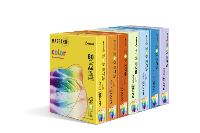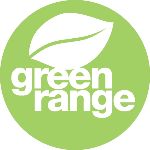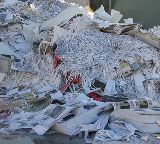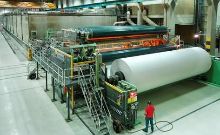Ianadmin
Mondi highlights its eco-friendly office papers at the 2012 Big Buyer trade fair
 At one of Italy’s largest trade fairs for the office paper and stationery market, Mondi will showcase its Green Range digital printing papers for the office market, including the new DNS® color print.
At one of Italy’s largest trade fairs for the office paper and stationery market, Mondi will showcase its Green Range digital printing papers for the office market, including the new DNS® color print.
Mondi Uncoated Fine Paper, a business unit of the global packaging and paper manufacturer Mondi, will be exhibiting at the Big Buyer Trade Fair, at booth F13 G2, Pavilion 18. The company will showcase popular office brands and introduce the recently launched DNS® color print – a new digital printing paper with an extra smooth surface and high whiteness level (170 CIE).
Mondi launched DNS® color print in October, highlighting its versatility for office users who rely on high-white papers for rich contrasts and high opacity for full colour reproduction with duplex printing. Moreover, it is specially engineered for digital colour printing on laser printers, copiers, and colour inkjet printers. DNS® color print is also produced with ColorLok® Technology, which is a class of paper additives that visibly enhance the print quality of inkjet documents while providing faster drying time. Mondi’s ColorLok® portfolio also includes DNS® premium, IQ premium, IQ selection smooth, IQ appeal,
MAESTRO® extra, MAESTRO® supreme, MAESTRO® bulky, BIO TOP 3® extra, NAUTILUS® ReFresh
TRIOTEC, and 100% recycled NAUTILUS® SuperWhite (available with a CO neutral option).
 “Mondi is a returning exhibitor at Big Buyer, which we see as an excellent opportunity to engage with our Italian customers. Our office portfolio continues to grow and this year we re-launched our Green Range with a new campaign that celebrates our environmental achievements,” said Johannes Klumpp, Marketing and Sales Director for Mondi Uncoated Fine Paper.
“Mondi is a returning exhibitor at Big Buyer, which we see as an excellent opportunity to engage with our Italian customers. Our office portfolio continues to grow and this year we re-launched our Green Range with a new campaign that celebrates our environmental achievements,” said Johannes Klumpp, Marketing and Sales Director for Mondi Uncoated Fine Paper.
The Green Range is Mondi’s portfolio of sustainably produced papers. In 2012, all Mondi-branded papers fulfilled the Green Range criteria and are FSC® or PEFC™ certified, or 100% recycled or TCF (Totally Chlorine Free bleached). Visitors will have an opportunity to learn more about the Green Range at Mondi’s “Green Office” presentation on November 23rd at 9:30 am.
Big Buyer visitors interested in green purchasing for their offices can learn more about Mondi’s sustainably produced brands and the full environmental credentials for Mondi’s office brands Color Copy, BIO TOP 3®, NAUTILUS®, IQ, MAESTRO, and DNS®.
Mondi is an international packaging and paper Group, with production operations across 28 countries and revenues of €5.7 billion in 2011. The Group's key operations are located in central Europe, Russia and South Africa and as at the end of 2011, Mondi employed 23,400 people.
Mondi Group is fully integrated across the paper and packaging process, from the growing of wood and the manufacture of pulp and paper (including recycled paper), to the conversion of packaging papers into corrugated packaging, industrial bags and coatings.
The Group is principally involved in the manufacture of packaging paper, converted packaging products and uncoated fine paper (UFP).
Japan’s Marubeni signs deal to build world’s largest bleached softwood kraft pulp mill in Russia
The Japanese firm Marubeni is gearing up to build a 1.2 million tonne/yr pulp mill in the Krasnoyarsk area of Russia, following negotiations between the Japanese trading firm and the greenfield plant's Russian owner, Angara Paper.
A contract for Marubeni to build the pulp facility was signed after a trade and economic relations meeting between Russian president Vladimir Putin and Japanese prime minister Yoshihiko Noda at the 2012 APEC (Asia-Pacific Economic Cooperation) conference in Vladivostok, Russia, on September 8.
Related stories:
A Marubeni contact said that under the equipment, procurement and construction agreement between the two firms, Marubeni will be the turnkey contractor for the $3.5 billion pulp mill.
He indicated that the plant will house a 900,000 tonne/yr bleached softwood kraft pulp line, the world's largest of its kind, and a 300,000 tonne/yr textile dissolving pulp line.
The facility is to be located in Lesosibirsk, a town in Krasnoyarsk krai, eastern Russia, on the Yenisei River.
Construction work at the site is slated to begin early next year, with startup scheduled for 2017, he added.
In April last year, Södra signed a letter of intent with Angara Paper to become the latter's distributor of pulp sales, if the project went ahead.
According to sister publication PPI Europe, under the letter's terms, the Swedish firm could hold up a 10% stake in the company or be paid in cash for its distribution services.
However, a final contract has not been inked between the two companies. And Marubeni is a possible candidate to be an agent for selling the pulp mill's output when it comes on stream.
According to the Japanese news agency Nikkei, around 80% of the new pulp plant's output is to be sold in Japan, China and elsewhere in Asia.
The Japanese firm is a trading powerhouse selling woodchips, market pulp, recovered paper, paper and board on the global market, with its business focusing on fast-growing Asian sectors for the past several years.
The company has also developed managed plantations that total 390,000 ha in Australia, Brazil, Canada, China and Indonesia.
In the mid-stream and downstream forestry industry, it owns majority stakes in two pulp producers, one based in Canada and the other in Indonesia, and in several paper and board firms in Japan. It also has minority shares in two recycled containerboard manufacturers (the Malaysian firm GS Paper & Packaging and the Taiwan-based Long Cheng Paper (China) Holdings and in several Japanese firms.
PT TEL pulp plans: Currently, Marubeni sells market pulp manufactured at the 475,000 tonne/yr Peach River pulp mill in Alberta, Canada, operated by its subsidiary Daishowa-Marubeni International, and the output from another subsidiary, PT Tanjung Enim's (PT TEL) 450,000 tonne/yr bleached acacia kraft pulp in South Sumatra, Indonesia.
Earlier this month, the Indonesian media reported that PT TEL planned to erect a new 500,000 tonne/yr pulp line at the facility. The Marubeni source denied the report, saying it has no plans for expansion there at present.
He said that the plant is planning a 5-10 annual maintenance downtime in October, but further details, such as the exact dates for the shut, have not yet been hammered out.
Norske Skog invests AUD 84 mill in Australia
 Norske Skog will convert a machine at the Boyer mill in Australia to the production of coated grades, and close one newsprint machine at the Tasman mill in New Zealand.
Norske Skog will convert a machine at the Boyer mill in Australia to the production of coated grades, and close one newsprint machine at the Tasman mill in New Zealand.
- We are committed to the future in Australia, and we therefore invest AUD 84 million. With substantial funding support from the Australian government, we strengthen the operations at Boyer. This will create future growth opportunities for the Norske Skog group, said Norske Skog President and CEO Sven Ombudstvedt.
The machine conversion project will see AUD 84 million invested at Norske Skog's Boyer Mill in Tasmania over the next two years to enable the production of coated grades among other things suitable for catalogues. The Australian Federal Government will contribute AUD 28 million in grants to help fund the project, and the Tasmanian State Government is providing an AUD 13 million loan. Completion is targeted for the first quarter of 2014.
- The permanent closure of 150,000t of capacity at the Tasman mill in New Zealand is required to create a better balance between demand and supply for newsprint in the region. There is today considerable surplus capacity of newsprint in the region. Despite years of great efforts of the staff, the decision is unfortunately unavoidable. The implementation arrangements and timeframes will be subject to consultation with employees and other stakeholders, Mr Ombudstvedt said.
The final costs of the restructuring will be determined once the consultation process at the Tasman mill is completed.
SOURCE: Norske Skog
UK Paper Industry Calls for Change in Manufacturing Policy
 CPI expresses concern over legislative initiatives that it says jeopardize the United Kingdom's paper industry.
CPI expresses concern over legislative initiatives that it says jeopardize the United Kingdom's paper industry.
The U.K.-based Confederation of Paper Industries has released a statement expressing concern over government policies and initiatives that it says may have a negative impact on the paper industry in the U.K.
In the statement, David Workman, CPI director general, calls for significant changes to the paper industry in the country. In defense of the industry, Workman points out that the U.K. paper industry includes 50 paper and paperboard mills and accounts for around 25,000 jobs in the country.
Highlighting the environment efforts of the U.K. paper industry, Workman says that since 1990 the industry has reduced its energy consumption and carbon emissions by more than 30 percent and has invested more than £10 billion (US$16.2 billion) in equipment and combined heat and power and on-site biomass plants. Meanwhile the paper recycling rate in the U.K. stands at 73 percent.
The CPI adds that despite these successes, government policy is acting as a disincentive to further investment and could result in the closure of many mills over the next decade. Potentially the most damaging of the policies, CPI points out, is the Carbon Price Floor, which comes into effect in 2013. At £16 per metric ton, it could cost the paper industry more than twice the amount paid by EU competitors. Further, the rate is due to increase by £2 per metric ton every year, until 2020. CPI calls for the U.K. government to abandon plans to implement the tax.
The CPI also finds fault with the new climate change agreements (CCAs) coming into force next year. According to CPI, the U.K.’s Department of Energy and Climate Change (DECC) has set an arbitrary target calling for the U.K. paper industry to reduce energy use an additional 14 percent.
Lenzing Now Owns 100% Stake in Pulp Producer Biocel Paskov
 Lenzing AG, listed on the benchmark index ATX of the Vienna Stock Exchange and global market leader for man-made cellulose fibers, has now acquired a 100% shareholding of the Czech pulp producer Biocel Paskov A.S. Up until now Lenzing has held a 75% stake in the company. The seller of the remaining 25% of the shares is the Austrian Heinzel Group, which had already disposed of its 75% majority stake to Lenzing in April 2010.
Lenzing AG, listed on the benchmark index ATX of the Vienna Stock Exchange and global market leader for man-made cellulose fibers, has now acquired a 100% shareholding of the Czech pulp producer Biocel Paskov A.S. Up until now Lenzing has held a 75% stake in the company. The seller of the remaining 25% of the shares is the Austrian Heinzel Group, which had already disposed of its 75% majority stake to Lenzing in April 2010.
Since 2010 Lenzing has been restructuring the Biocel Paskov facility to become a “swing capacity” producer of pulp, involving total investments of about EUR 100 mn. Starting in the year 2013 Biocel Paskov will be able to completely produce both paper pulp as well as high quality dissolving pulp used in the manufacturing of cellulose fibers. A total of 60,000 tons of dissolving pulp were already produced in the previous year, with plans calling for a production volume of about 115,000 tons of this pulp quality in the current year.
In the course of 2013 Biocel Paskov will operate as one of the world‘s most high-performance and advanced manufacturing plants for this special pulp thanks to a further debottlenecking program, increased energy efficiency and new recovery facilities. The nominal capacity of the plant will amount to 260,000 tons of dissolving pulp at that time. The pulp will mainly be used by the Lenzing Group for its fiber production operations. This vertical backward integration represents an important means for the Lenzing Group to safeguard its raw material base, both in terms of prices and volumes.
Biocel Paskov commenced production in the year 1985 and was subsequently modernized and expanded during the 1990s in line with ecological standards. The Group led by the Austrian industrialist Alfred Heinzel acquired the plant in 2001, and continued the modernization drive. Since
2004 Biocel Paskov has been cooperating with the neighboring sawmill operating by the Austrian Mayr-Melnhof wood industry group, which contributes part of the raw materials needed to manufacture pulp in the form of wood chips. Biocel Paskov employs a work force of close to 400 people.
Cascades Tissue Group Bringing First-ever Antibacterial Paper Towel to U.S. Market
Innovative Cascades Antibacterial Paper Towel provides a simple and effective way to further reduce bacterial contamination and transmission
North America's fourth largest producer of towel and tissue paper, Cascades Tissue Group, announced today the U.S. launch of the Cascades Antibacterial Paper Towel. Redefining the hand towel's role in enhancing hygiene, the Cascades Antibacterial Paper Towel minimizes hand contamination by killing 99.99 percent of harmful bacteria almost instantly unlike ordinary paper towels.
Since 80 percent of all infections are transmitted by hand, the lack of proper hand hygiene, in particular inadequate hand washing and drying practices, continues to be a consistent, if not deadly, problem. The distinctly green-colored Cascades Antibacterial Paper Towel can fit anywhere, doesn't require additional steps and compensates for people's imperfect hygiene habits without changing the way they wash or dry their hands. The towel releases the active ingredient Benzalkonium Chloride when in contact with wet hands. This active ingredient has been around since 1935 and is safely used in common products, including gel sanitizers, baby wipes and antiseptic skin solutions.
First cleared by Health Canada, Cascades' innovative paper product now complies with the regulation and policies of the U.S. Food and Drug Administration. It is expected to be a hit for the healthcare, foodservice, food processing and education industries, where businesses face a daily challenge: reduce bacterial contamination and transmission. As one example, the U.S. Department of Health estimates that at any given time about one in every 20 inpatients has an infection related to hospital care.
“It's a first-of-a-kind product that eliminates residual bacteria almost instantly. Now everyone can help control the spread of bacteria, ”said Suzanne Blanchet, CEO of Cascades Tissue Group and product champion. “While this is a groundbreaking innovation, the Antibacterial Paper Towel makes good common sense as it relates to human health. We believe the product will revolutionize the paper towel's role in proper hygiene because of its efficacy and because it doesn't require a change of habits.”
Cascades Tissue Group has performed several third-party laboratory tests to ensure the safety and efficacy on the Antibacterial Paper Towel. Importantly, microbiologists also note that using the Antibacterial Paper Towel in conjunction with washing hands with soap and water provides a more hygienic result than using alcohol-based gels and other hand sanitizers. While these products kill bacteria and are useful when there is no water and soap available, they don't remove the organic matter (grease, dirt, blood, fecal matter) often found on hands.
Additionally, Cascades Tissue Group produced the Antibacterial Paper Towel using the best environmental practices. It contains 100 percent recycled fiber, and is made using five times less water than the North American paper industry average, making it an environmentally preferable option as well. For more information, visit www.cascades.com/bacteria
Product Adds to Growing Portfolio of Novel Towel and Tissue Innovations
This paper towel is the third innovation Cascades Tissue Group has introduced to the North American “Away-from-Home” market this year. Earlier this year, the company launched Cascadesâ Eliteä towels and Cascadesâ Mokaä bathroom tissue.
Cascades Elite hand towels are made with a unique technology that – for the first time ever – gives recycled fiber paper towels a level of softness and absorbency that's equivalent to the through-air-dried (TAD) ultra-soft paper towels made from virgin fiber sources. While its feel and absorbency are the same as TAD products, its environmental impact is not, as the technology generates 78 percent fewer greenhouse gas emissions.
Cascades Moka, North America's most sustainable and first beige-colored bathroom tissue, contains corrugated cardboard as part of its pulp recipe. Boldly, the product also does not undergo the whitening phase used by papermakers to “improve” aesthetics. The beige result means minimal energy, chemicals and natural resources used in manufacturing, yet it is just as soft and hygienic as the white tissue alternative.
Point Tupper paper rolls again
 The first roll came off the supercalendered paper machine at 1:11 a.m. Wednesday, a major milestone for the Point Tupper mill many once left for dead.
The first roll came off the supercalendered paper machine at 1:11 a.m. Wednesday, a major milestone for the Point Tupper mill many once left for dead.
The former NewPage Port Hawkesbury paper mill, rechristened Port Hawkesbury Paper LLC by new owners Pacific West Commercial Corp., an affiliate of Stern Partners Inc. of Vancouver, had been buzzing with activity over the last two weeks to prepare for this moment.
“We’re very, very happy we did because we have customers with orders that want to run that paper on Monday,” Marc Dube, the mill’s restructuring manager, said in a telephone interview Wednesday.
“So we needed to get production started, and obviously we had some small items that stopped us, but once production started, we ran the first 12 hours without a paper break.”
A substantial $124.5-million aid package extended by the Nova Scotia government to Pacific West was nearly derailed last month before being resuscitated less than 24 hours later, much to the relief of many on Cape Breton Island left in limbo since the mill was shuttered by its former owners,NewPage Corp., last year.
The $33-million sale of the mill to Pacific West was officially finalized Friday, much to the delight of many across the Strait of Canso also dependent on the region’s largest employer.
Dube said that after nearly a year of negotiations, the company was happy to be producing paper, noting that there is a “real team atmosphere and a real determination that we’re going to make sure that the mill can be a success.”
The provincial government spent millions over the last year keeping the mill resale ready in a “hot-idle” state, but that didn’t mean that the supercalendered machine, which makes paper used for magazines, catalogues and newspaper inserts, was ready at the flick of a switch.
“There’s so many different parts and pieces to a mill like this that all have to flow together for it to be successful, so we had some motor failures, pump failures, we had some plugged lines, we had a steam outage because of a power bump at the steam plant,” Dube said.
The equipment is now working well and workers will “continue to fine-tune and continue to speed things up until we’re back to full production,” he said.
About 550 unionized employees worked at the mill under its former operator, but less than half that — 229 workers — will be called back, with several more positions being contractual and management.
Dube said he expects to be at a full complement of employees by December, at the latest.
“Not everyone’s back that we’ve called back. Some people will be coming in during the month of October. Some people have decided not to come back. We’ve offered those jobs to others, and so they’ll be reporting as quickly as they can.”
The mill will be at full production in the next week, producing as much as 1,000 tonnes of paper a day.
Dube said the company has been fielding orders from across Canada, the United States and overseas since last month, with the first order shipping today.
That order is expected to be put to press by the customer Monday.
“So we’ve got a strong interest, and we’re very happy that the reputation of the paper and the employees here have allowed us to get back into the marketplace in a very positive way.”
Tembec inaugurates anaerobic treatment facility at pulp mill in Matane, Québec
Tembec officially inaugurated today a new anaerobic treatment facility which will produce methane biogas and greatly reduce the use of fossil fuels at its high-yield pulp mill in Matane, Québec. Dignitaries from the surrounding region and members of Tembec’s senior management joined together with employees to inaugurate the new facility. This investment was announced January 10, 2011.
Funding for this investment was provided mainly by the Government of Canada with $19.7 million and the Government of Québec with $6.3 million. The overall project represents a total investment of $29 million - $26 million for the anaerobic facility and $3 million for the installation of the new electric boiler.
The project has two main components. The first is a new anaerobic treatment facility, which treats effluent and collects methane gas produced by the treatment process. This biogas will be used as fuel in the mill’s pulp-drying process, in place of the light oils currently used. The second component is the installation of a new electric boiler, which replaces a heavy oil fuelled boiler. These two initiatives together will reduce by approximately 90% the use of oil as fuel sources for the generation of the Matane mill’s various process steam and pulp drying requirements.
“This investment means better environmental, energy and economic performance for our Matane mill,” said James Lopez, President and Chief Executive Officer of Tembec. “By substantially reducing operating costs, this project will help assure the competitive position of our high-yield pulp on the global market.” “Tembec recognizes the support of the Government of Québec and the Government of Canada in the project, and we appreciate their confidence in helping us ensure the future of the mill,” added Mr. Lopez.
The Matane mill, which has 140 employees, exports its high-yield pulp to the United States, France, Italy, Spain, Germany, Korea and China.
Restructuring programme at Hallsta Paper Mill
Holmen Paper is starting work aiming to concentrate production at the mill in Hallstavik to two paper machines with strong positions in their respective product segments: MF Magazine and book paper. The result of this is that the mill’s oldest machine, PM 3, is being shut down. At the same time, there are plans to invest in energy efficiency measures that, together with the closure, will considerably reduce the mill’s future investment needs. These measures will strengthen the mills competitiveness.
“The restructuring programme will ensure that Hallsta Paper Mill continues to play an important role in the switch towards becoming a speciality paper company, a process that has been under way at Holmen Paper’s Swedish units for a long time. It will help improve our chances of growing in the areas of importance to us,” says Henrik Sjölund, head of Holmen Paper.
The aim is to close down PM 3 during the second half of 2013. The paper machine manufactures 140 000 tonnes of SC paper annually for a market with excessive overcapacity. Closure is assessed to lead to a reduction in the workforce of around 230.
SCA divests newsprint mill in Aylesford
 SCA has divested its 50% shareholding in the UK-based newsprint facility Aylesford Newsprint to the private equity company Martland Holdings.
SCA has divested its 50% shareholding in the UK-based newsprint facility Aylesford Newsprint to the private equity company Martland Holdings.
Martland Holdings has acquired all of Aylesford Newsprint, which was equally owned by SCA and Mondi. The company has 280 employees and its annual capacity is approximately 400,000 tonnes of recovered fibre-based newsprint. Total sales for 2011 were approximately SEK 1.6bn (GBP 150m). The operations have been loss-making for the past years.
The sale of shares was carried out on a debt-free basis for a symbolic amount. The transaction involved a book loss of SEK 850m (GBP 80m) and a negative cash flow effect of SEK 140m (GBP 13m) for SCA. The loss will be booked in the third quarter of 2012.
The transaction was finalised on 2 October 2012.
